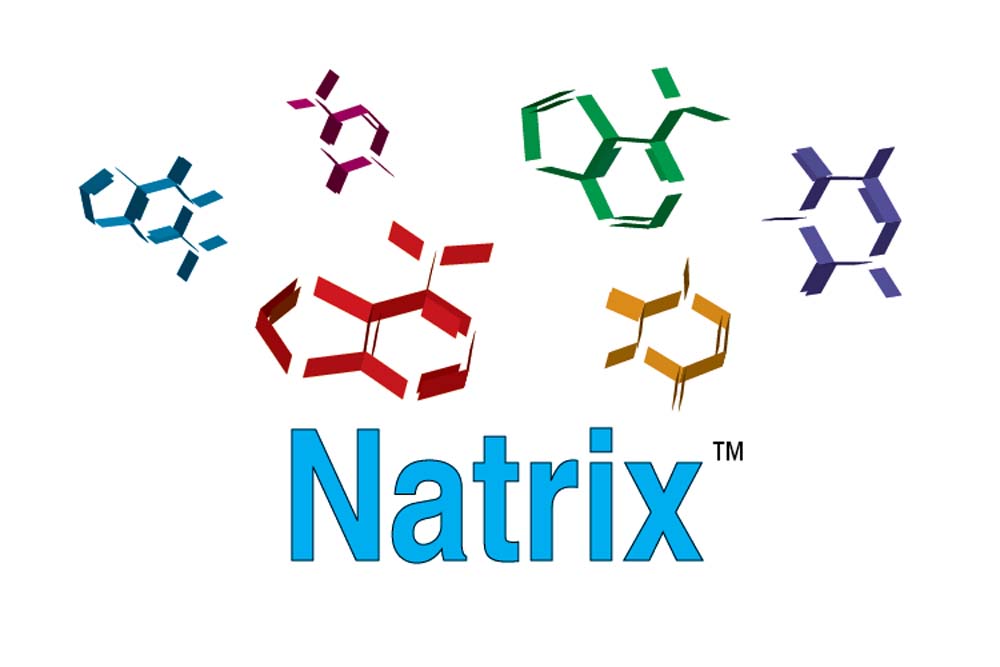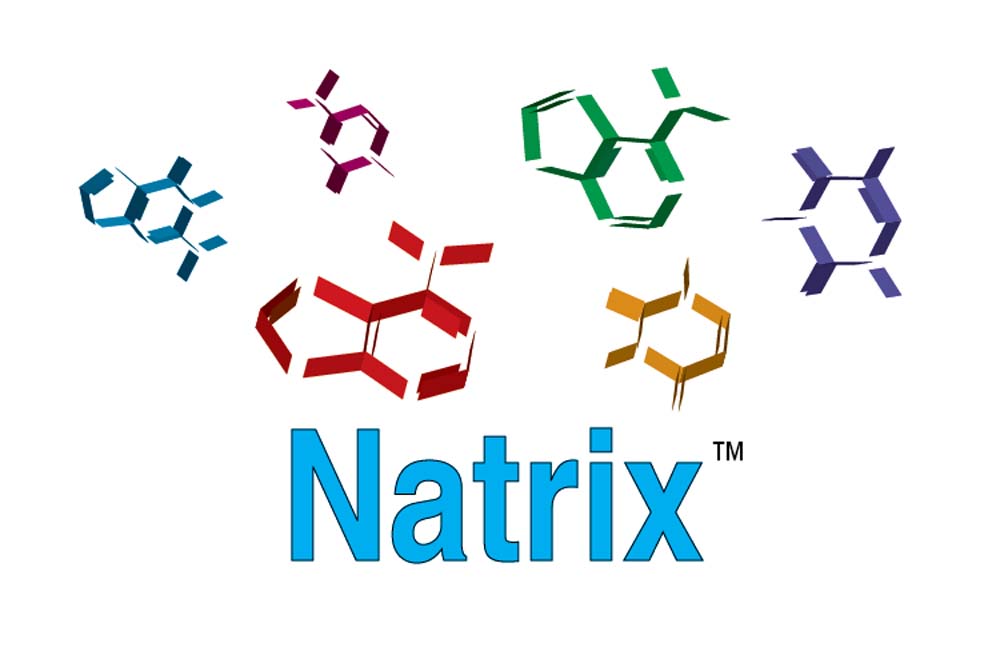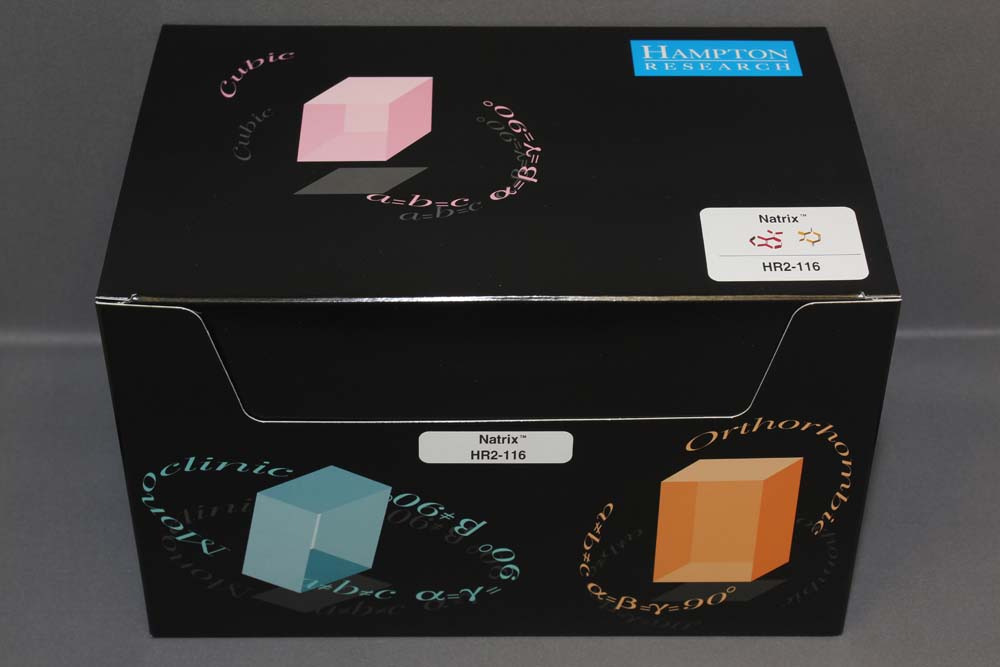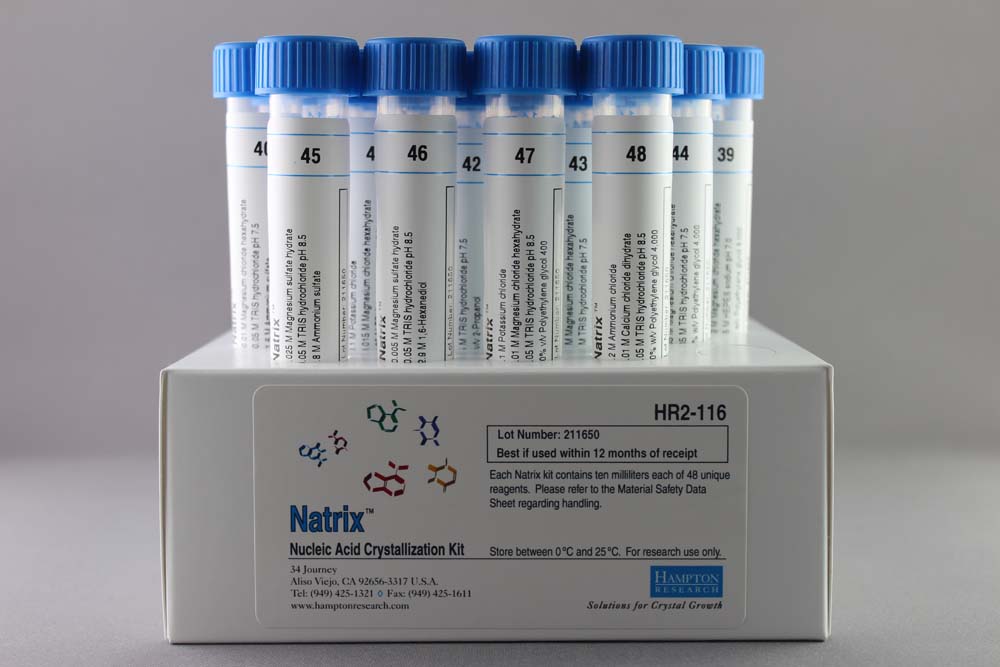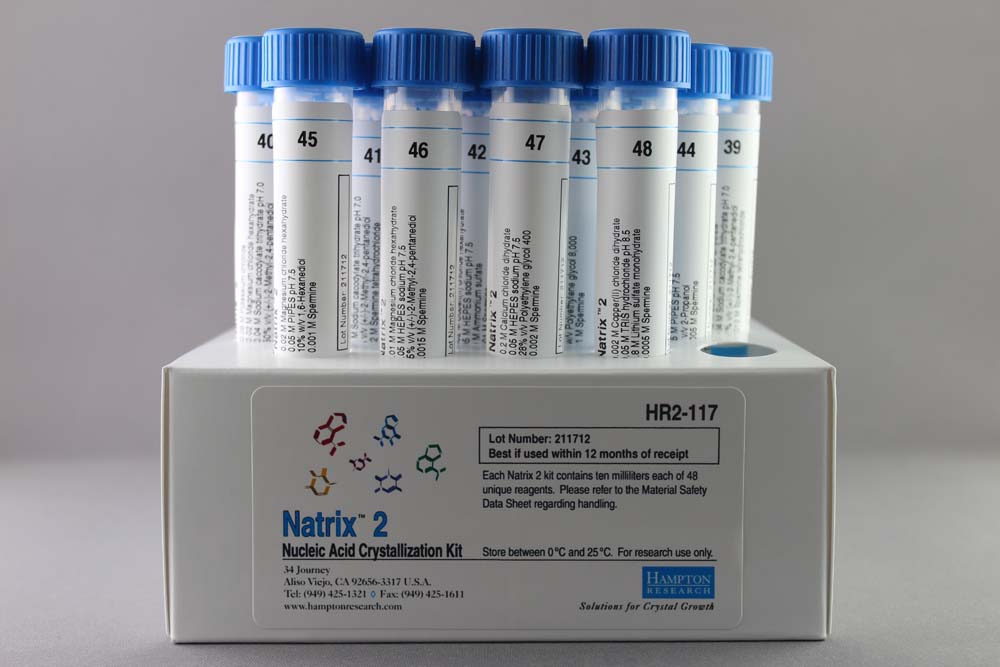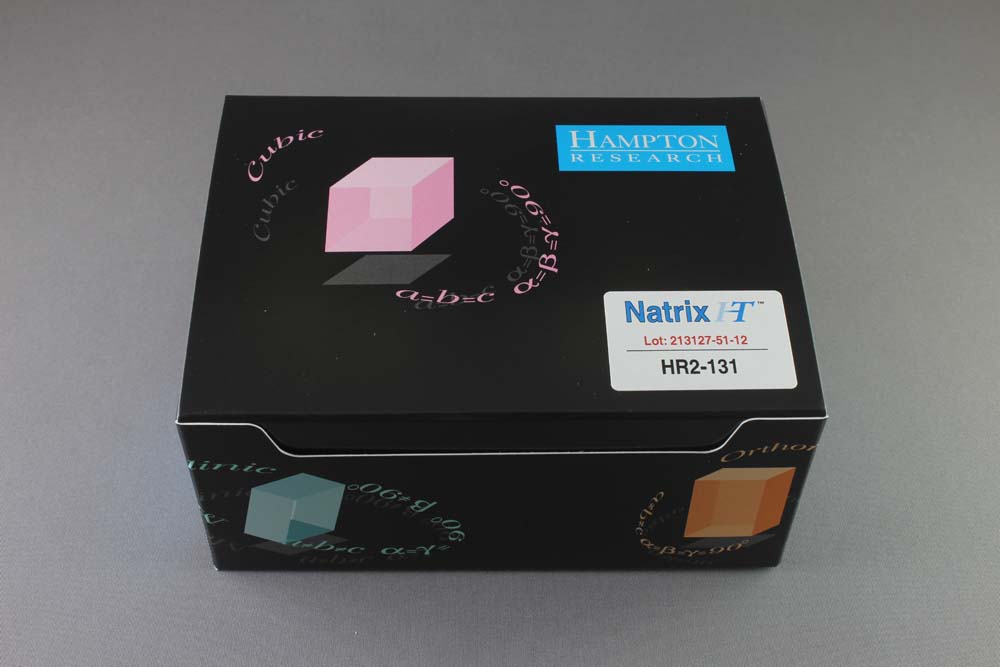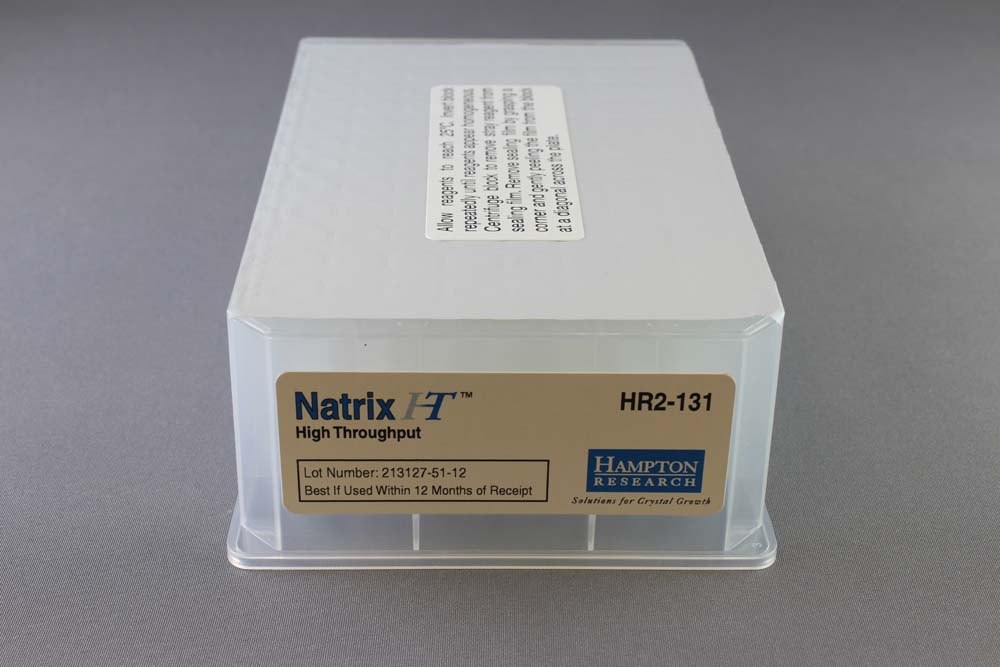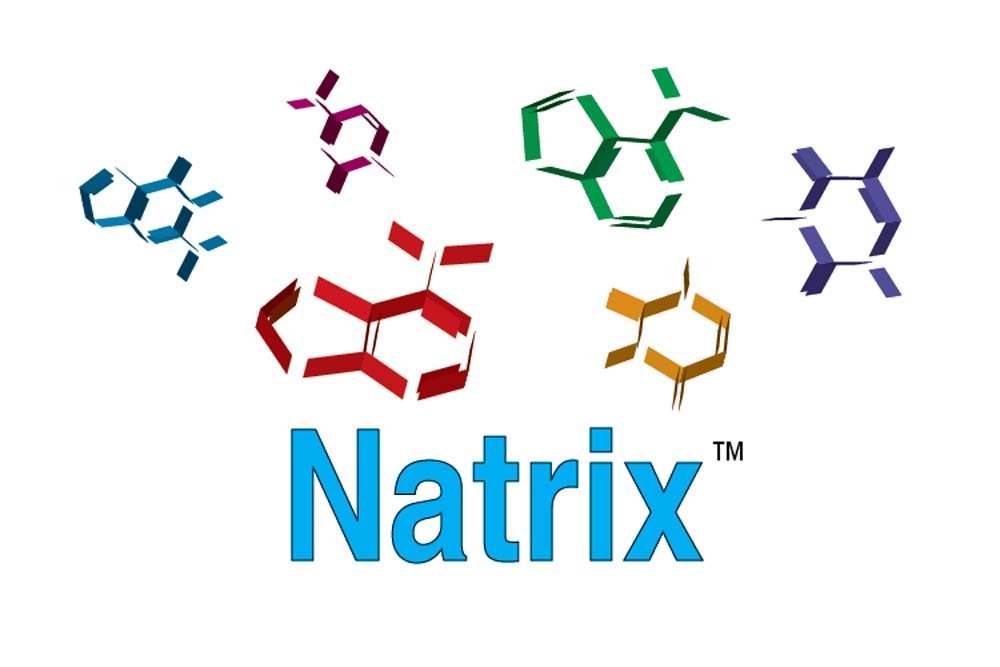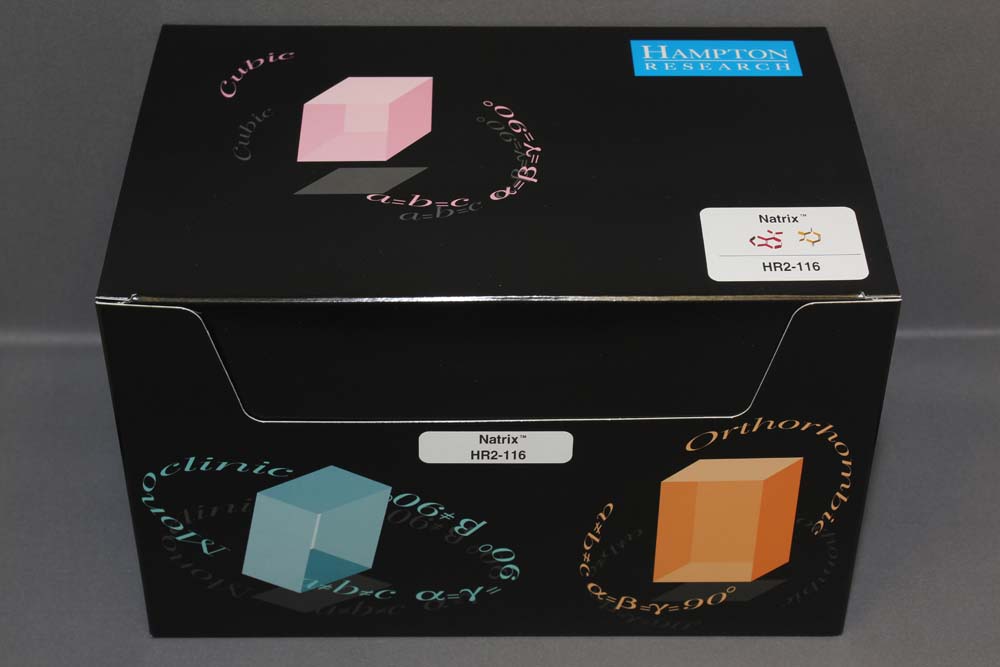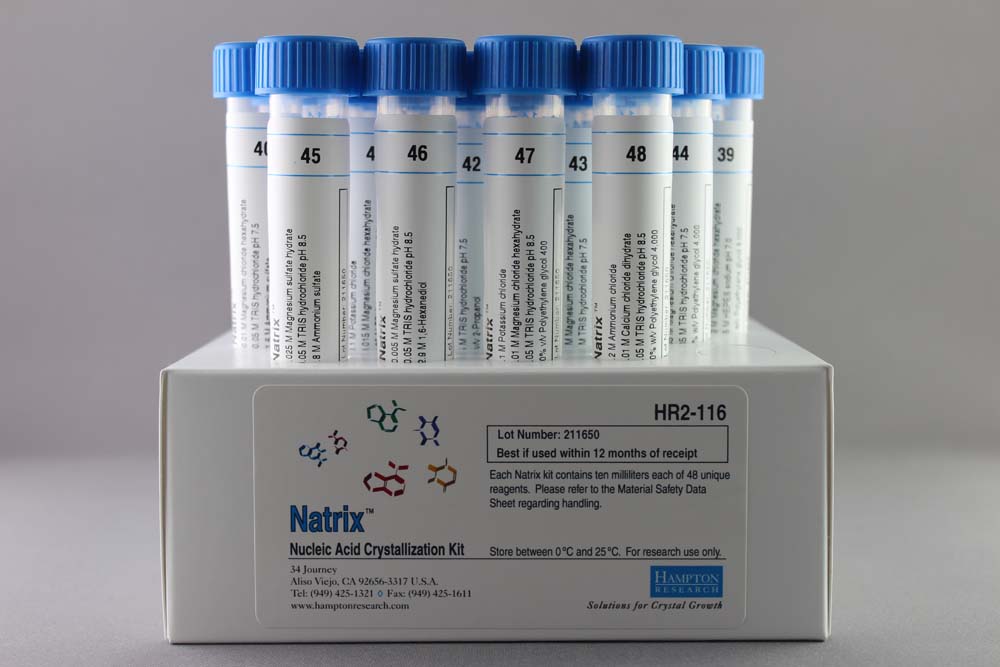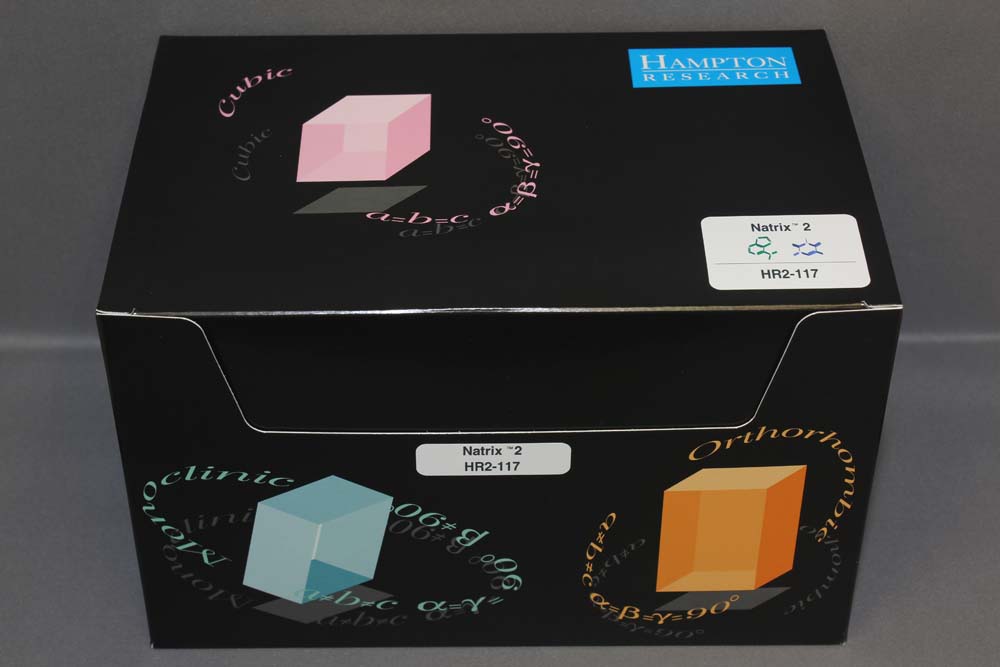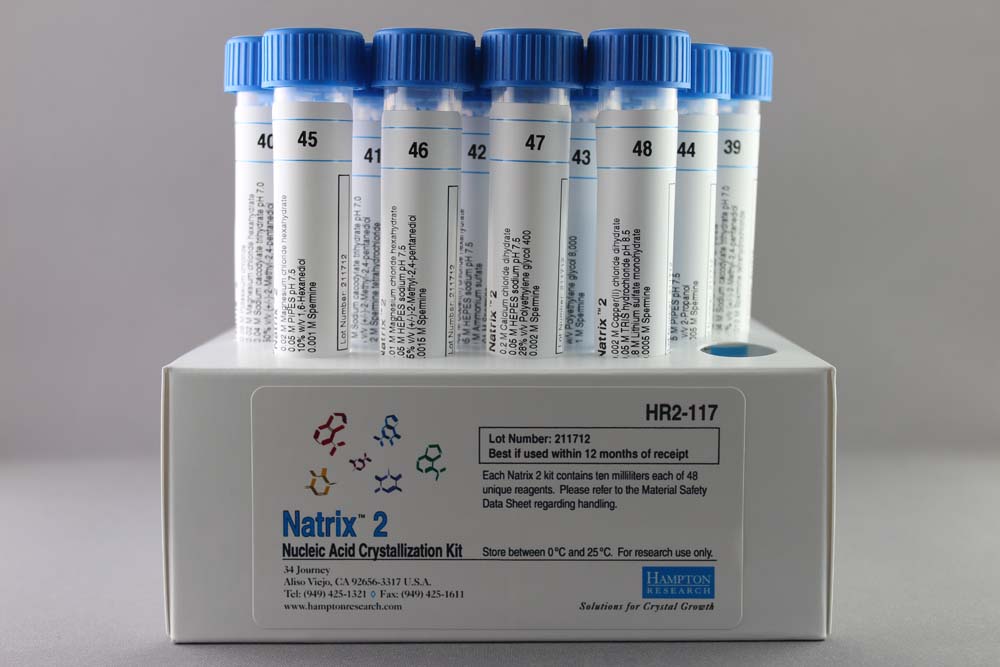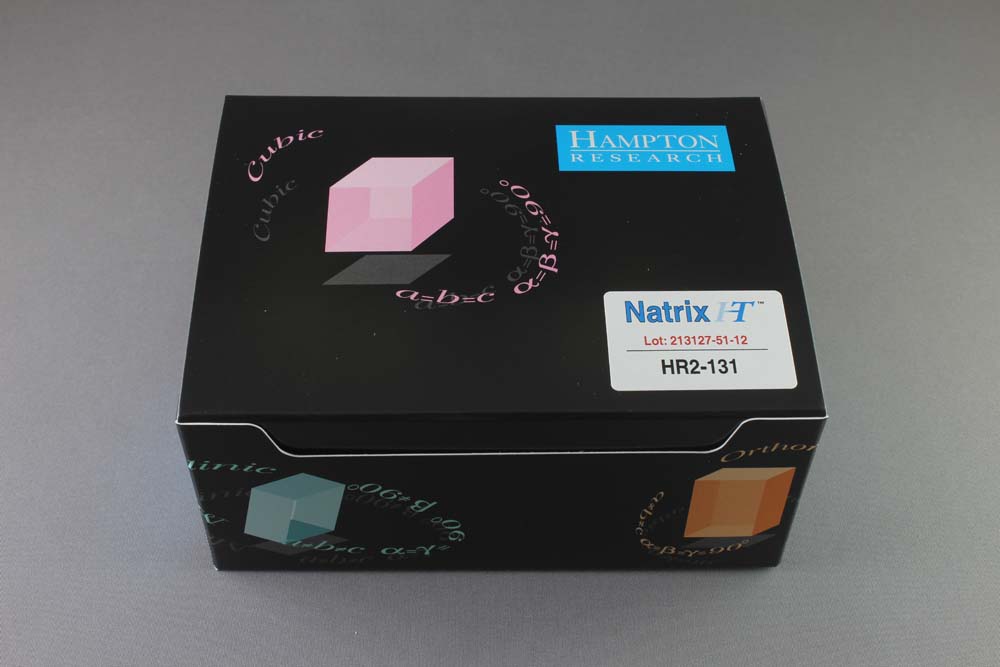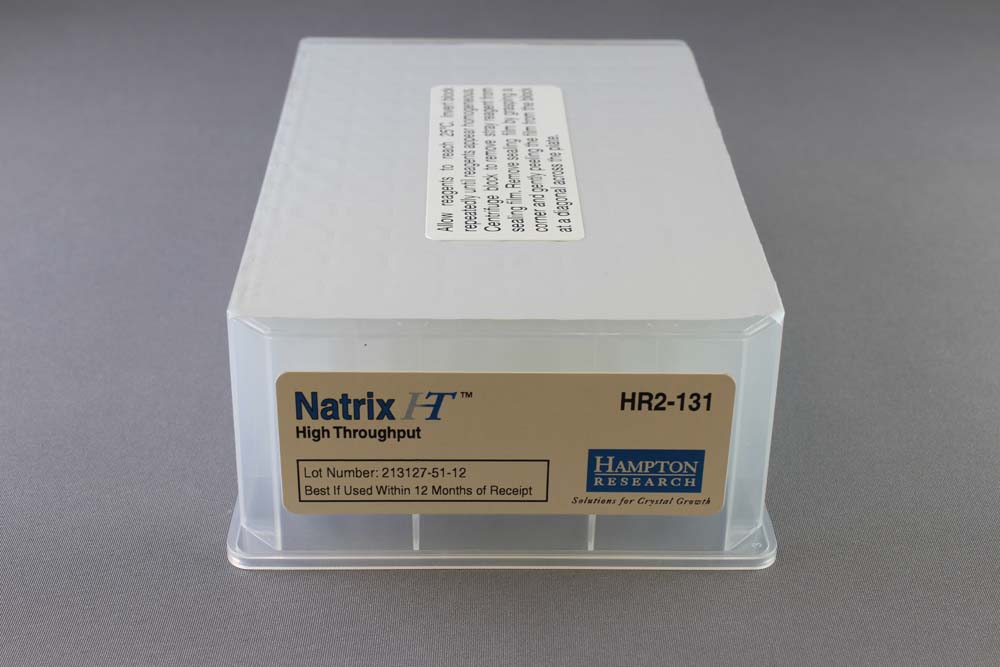Hampton Research蛋白结晶试剂盒






Products > Crystallization Screens > Natrix • Natrix 2 > Natrix • Natrix 2 • Natrix HT
Natrix • Natrix 2 • Natrix HT
Applications
- Primary biased sparse matrix crystallization screen for nucleic acids & protein/nucleic acid complexes
Features
- Nucleic acid sparse matrix screen
- Sparse matrix formulation efficiently samples salts, polyols, polymers, organics, additives & pH
- pH range 5.6 – 8.5
- Tube or Deep Well block format
Description
Natrix, Natrix 2 and Natrix HT are based upon published reagent formulations for the crystallization of nucleic acids and protein-nucleic acid complexes. A variety of hammerhead ribozymes and other ribozymes, RNAs, DNAs, RNA-drug complexes, and RNA-protein complexes have been crystallized using the Natrix protocols.
By using sparse matrix sampling technology, The Natrix kits allow one to quickly test wide ranges of pH, salts, and precipitants using a very small sample of nucleic acid.
Natrix screens are unique in that rather than relying solely on the traditional nucleic acid precipitant MPD, Natrix screens also utilize Polyethylene glycols (PEGs) in a variety of molecular weights (200, 400, 4,000, 8,000) as well as 2-Propanol, Polyethylene glycol monomethyl ether (PEG MME), and 1,6-Hexanediol. Many of the polymeric and low molecular weight organic precipitants are combined with various monovalent salts as precipitating agents. This combination of salts and low molecular weight organics and polyalcohols, as well as the utilization of varying chain length PEGs, has proven to be a successful combination for producing nucleic acid and protein-nucleic acid complex crystals.
Natrix contains 48 unique reagents, 10 ml each and is based on the sparse matrix formulation first described by William Scott in 1995.
Natrix 2, an extension of Natrix, contains 48 unique reagents, 10 ml each. Natrix 2 is a biased sparse matrix screen based on extracting patterns from crystallization data as well as reagent formulations first described by Berger et al in 1996.
Natrix HT contains 1 ml of each reagent from Natrix and Natrix 2 in a single Deep Well block format.
Ready-to-use reagents are sterile filtered and formulated with ultra-pure Type 1 water, using the highest purity salts, polymers, organics and buffers. Individual reagents are available through the Hampton Research Custom Shop.
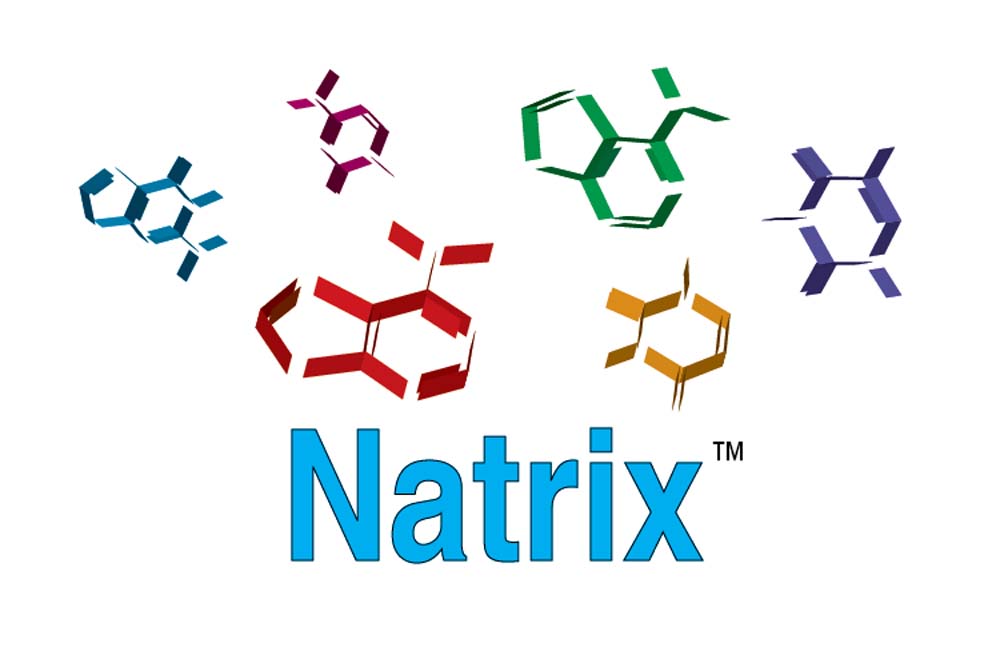
Click to Zoom In
CAT NO
HR2-116
NAME
DESCRIPTION
10 ml, tube format
PRICE
$253.00
cart quote
CAT NO
HR2-117
NAME
DESCRIPTION
10 ml, tube format
PRICE
$253.00
cart quote
CAT NO
HR2-131
NAME
DESCRIPTION
1 ml, Deep Well block format
PRICE
$147.00
cart quote
Support Material(s)
 HR2-116 Natrix Documents
HR2-116 Natrix Documents HR2-116 Natrix SDS
HR2-116 Natrix SDS HR2-117 Natrix 2 Documents
HR2-117 Natrix 2 Documents HR2-117 Natrix 2 SDS
HR2-117 Natrix 2 SDS HR2-131 Natrix HT Documents
HR2-131 Natrix HT Documents HR2-131 Natrix HT SDS
HR2-131 Natrix HT SDS Changes in Formulation Natrix Natrix 2 Natrix HT
Changes in Formulation Natrix Natrix 2 Natrix HT Natrix Formulation & Scoring Data
Natrix Formulation & Scoring Data Related Item(S)
- Individual Natrix • Natrix 2 • Natrix HT Reagents
References
1. Scott, W. G., Finch, J.T., Grenfell, R., Fogg, J., Smith, T., Gait, M.J., Klug, A., Journal of Molecular Biology (1995) 250: 327-332.
2. Purification, crystallization and preliminary X-ray analysis of the BseCI DNA methyltransferase from Bacillus stearothermophilus in complex with its cognate DNA. E. G. Kapetaniou, D. Kotsifaki, M. Providaki, M. Rina, V. Bouriotis and M. Kokkinidis. Acta Cryst. (2007). F63, 12-14.
3. Crystallization and preliminary X-ray diffraction analysis of an Escherichia coli tRNAGly acceptor-stem microhelix. C. Forster, M. Perbandt, A. B. E. Brauer, S. Brode, J. P. Furste, C. Betzel and V. A. Erdmann. Acta Cryst. (2007). F63, 46-48.
4. Combinatorial crystallization of an RNA-protein complex. Danielle Bodrero Hoggan, Jeffrey A. Chao, G. S. Prasad, C. David Stouta and James R. Williamson. Acta Cryst (2003). D59, 466-473.
5. Cocrystallizing natural RNA with its unnatural mirror image: biochemical and preliminary X-ray diffraction analysis of a 5S rRNA A-helix racemate. Volker A. Erdmanna et al. Acta Cryst. (2007). F63, 839-843.
6. Berger, et al., A Highly Effective 24 Condition Matrix for the Crystallization of Nucleic Acid Fragments. Acta Cryst. Section D. (1996) Vol. D52 Part 3, 465-468.
7. Crystallization and preliminary X-ray diffraction analysis of an Escherichia coli tRNAGly acceptor-stem microhelix. C. Förster, M. Perbandt, A. B. E. Brauer, S. Brode, J. P. Fürste, C. Betzel and V. A. Erdmann. Acta Cryst. (2007). F63, 46-48.
8. Adams, A., Nucleic Acids Research (2002) Vol. 30, 719-725.
9. Preliminary crystallographic analysis of mouse Elf3 C-terminal DNA-binding domain in complex with type II TGF-b receptor promoter DNA. Agarkar et al. Acta Cryst. (2009). F65, 1261-1263.
10. Crystallization and preliminary X-ray crystallographic studies of transglutaminase 2 in complex with Ca2+. T.-H. Jang and H. H. Park. Acta Cryst. (2014). F70, 513-516 [ doi:10.1107/S2053230X1400510X ]


Hampton Research, first in crystallization since 1991, developing and delivering crystallization and optimization screens, reagents, plates, and other tools for the crystallization of biological macromolecules, including proteins (antibody), peptides (insulin), and nucleic acids (DNA).
- Products
- Gallery
- My Account
|
|
|
- Contact Us
- Quick Order
- Support
|
- Privacy Policy
- Terms and Conditions
|
- Products
- Gallery
- My Account
- Support
- Contact Us
- Quick Order
- Privacy Policy
- Terms and Conditions
|
|
|
|
|
|
|
© 2021 HAMPTON RESEARCH CORP.
| Website by Skyhound Internet


